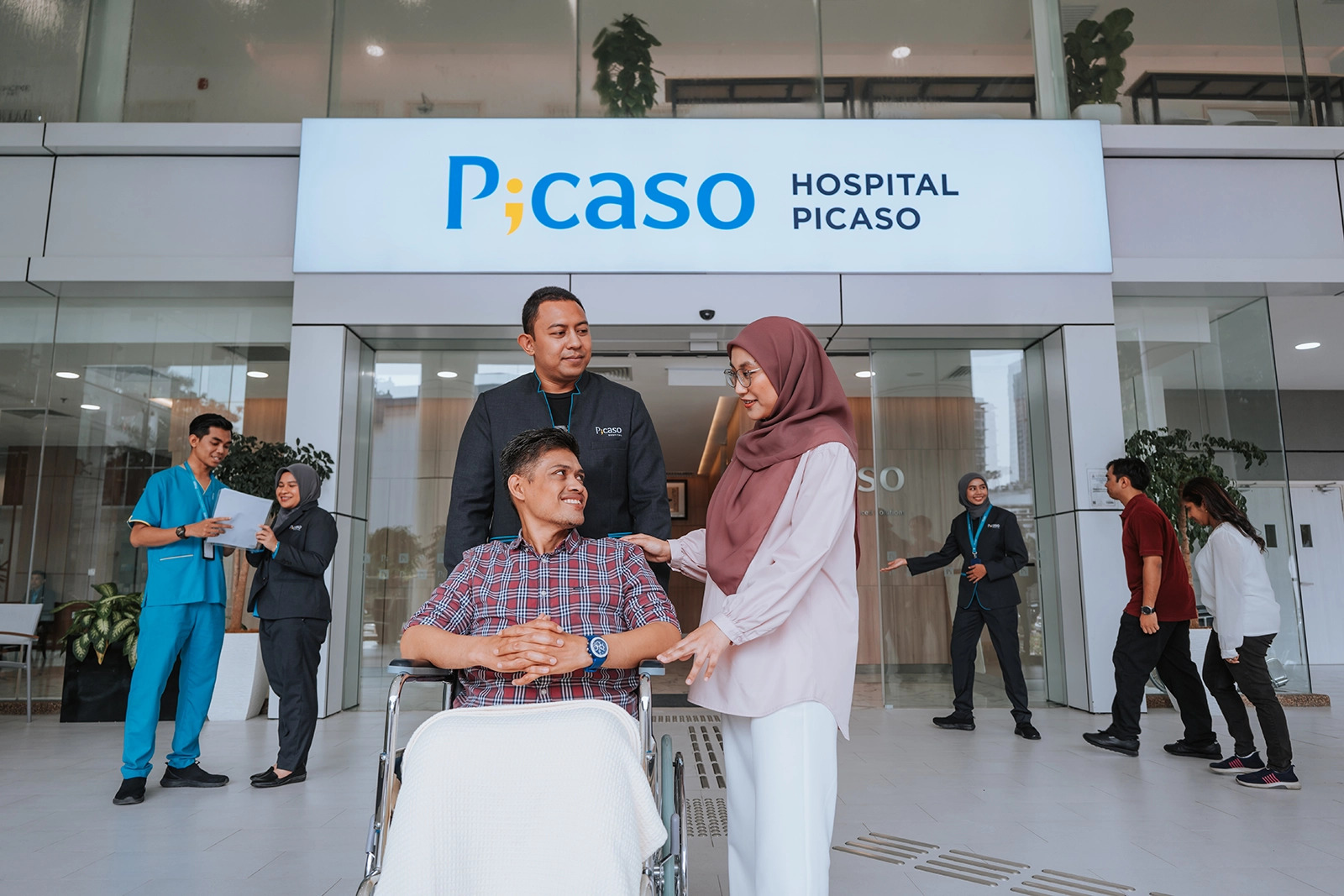
什么是子宫内膜异位症?
子宫内膜异位症是一种长期疾病,指类似子宫内膜的组织在不应出现的部位生长—例如卵巢、输卵管及其他盆腔器官。
每个月,这些异位组织会像在子宫内一样运作:增生、分解并出血。但与经血不同,它无法排出体外,因而会随着时间引起炎症、肿胀、瘢痕形成及严重疼痛。
子宫内膜异位症有多常见?
- 全球育龄女性中有 2–10% 受影响。
- 30–50% 的不孕女性被发现患有此病。
- 在马来西亚,约有 35 万名女性受到影响。
- 占严重盆腔疼痛病例的 5–21%。
尽管其患病率高,许多病例却多年未被诊断—因此,提高认知与及时求医尤为重要。
识别症状
子宫内膜异位症在不同女性身上表现不一。有些人会感到剧烈疼痛,而有些人症状轻微甚至无症状。
1. 常见的月经相关症状
- 严重痛经:月经期间下腹部剧烈疼痛
- 经量过多或月经不规律:出血明显增多,或月经周期不固定
- 月经期间排尿或排便疼痛:排尿或排便时出现灼烧感或痉挛感
- 经前点滴出血或经间期出血:在月经前或周期中随机出现轻微出血
2. 慢性症状
- 慢性盆腔疼痛(包括盆腔或下背部疼痛)
- 长期疲劳
- 尽管尝试数月或数年仍难以怀孕
- 性交时或性交后深部疼痛
症状可从轻微到严重不等,并可能显著影响生活质量。如果这些症状听起来熟悉,请记住您并不孤单—且有有效治疗可寻求。
谁容易患子宫内膜异位症?
以下因素可能增加风险:
- • 子宫内膜异位症家族史
- • 初潮年龄小于 12 岁
- • 月经周期少于 24 天
- • 原发性不孕:尝试超过一年仍难以怀孕
- • 体重指数偏低(BMI <22)
子宫内膜异位症如何诊断?
诊断过程具有挑战性–常规体检或影像学检查并不总能发现。若症状持续,应及时就诊妇科医生以进一步检查。
常见诊断方法包括:
经阴道超声
非侵入性影像学检查
磁共振成像(MRI)
高分辨率断层影像
CA-125 血液检测
肿瘤标志物评估
腹腔镜检查
金标准诊断方式(微创钥匙孔手术)
注: 随着医学影像与评估技术的进步,并非所有病例都需要通过手术明确诊断。请咨询妇科医生以获取个性化建议与评估。
益康医院(Hospital Picaso)子宫内膜异位症先进筛查
若您正经历盆腔疼痛、痛经或疑似相关症状,请勿拖延。益康医院提供的 子宫内膜异位症先进筛查配套,旨在为您带来清晰诊断、全程支持与个性化护理方案。
筛查配套包括:
- 妇科医生全面盆腔疼痛评估
- 盆腔影像学检查(经阴道或腹部超声)
- CA125 肿瘤标志物血液检测 – 用于辅助诊断
为什么选择此配套?
全面诊疗
一次就诊即可完成会诊与检查,提供完整医疗方案。
个性化女性健康支持
我们的妇科团队专注子宫内膜异位症与盆腔疼痛管理。
重视早期发现
及早识别症状,帮助您尽早开始治疗,提升生活质量。
治疗方案有哪些?
目前尚无永久治愈方法,但有多种方式可管理症状、减少复发并改善生活质量。
1. 激素治疗
通过减少或抑制月经,缩小异位组织并缓解疼痛。
常见选择包括:
- 口服避孕药
- 孕激素治疗
- Danazol 与芳香化酶抑制剂
- 促性腺激素释放激素激动剂(GnRHa)– 强效药物,通过降低激素水平来缓解症状并减少复发
研究显示,GnRHa 有助于减轻症状、抑制病情进展并降低复发风险,尤其与手术联合时效果更佳。
2. 生育治疗
有不孕困扰的女性可能需要:
- 排卵诱导药物
- 辅助生殖技术(如试管婴儿 IVF)
- 手术恢复解剖结构以提高受孕机会
3. 手术治疗
对于症状严重者,可能建议手术:
- 3D 腹腔镜手术:切除清除所有病灶
- 机器人手术:适用于深部及严重病灶
- 子宫切除术:腹腔镜或机器人辅助,适合高龄或已完成生育的女性
常见问题解答(FAQ)
1. 子宫内膜异位症能治愈吗?
目前没有永久治愈方法,但治疗可有效管理症状并改善生活质量。
2. 严重经痛是正常的吗?
经痛常见,但若疼痛影响日常生活,可能提示子宫内膜异位症,应尽早就医评估。
3. 得了子宫内膜异位症就一定不能怀孕吗?
不一定。许多女性仍可自然受孕。但若尝试超过一年仍未怀孕,建议尽快就医。
4. 早期治疗能改善生育结局吗?
早期诊断与规范管理有助于降低并发症并保护生育功能。及时就医至关重要。
5. 治疗后还会复发吗?
可能复发。持续的药物治疗与生活方式管理有助于降低复发风险。
6. 机器人手术有何不同?
益康医院采用的达芬奇 Xi 机器人系统可提高手术精准度、切口更小、恢复更快,相较传统方法具有明显优势。
关于益康医院(Hospital Picaso)
Hospital Picaso,是 PJ Integrated Centre of Advanced Surgery and Oncology 的简称。益康医院位于八打灵再也市中心,是一家领先的癌症专科中心,提供从筛查到治疗的一站式癌症解决方案。作为马来西亚 高端手术 与 综合肿瘤治疗 的权威中心,我们致力于为每一位患者打造个性化治疗旅程。
医院配备先进技术,包括机器人手术室与专科治疗中心,并由多学科医疗团队协作提供照护。我们坚信:康复是一场值得奋斗的战役—而这场战役,您不必独自面对。

立即预约子宫内膜异位症专科医生会诊
如果您或您所爱的人正受到子宫内膜异位症困扰,或仅仅想寻求专业解答,我们的团队随时为您提供帮助。让我们携手探索治疗方案,共同迈向康复与舒缓。立即预约:
地址:110, Jalan Professor Khoo Kay Kim, Seksyen 19, 46300 Petaling Jaya, Selangor
早期发现是关键

子宫内膜异位症检查配套(盆腔疼痛)
RM488.00 起
与我们的专科医生会面

陈意萍医生
妇产专科顾问医生
Dr Sharifah Halimah Jaafar
妇产专科顾问医生
林章杰医生
妇产及妇科肿瘤专科顾问医生
郑素娟医生
妇产专科顾问医生
